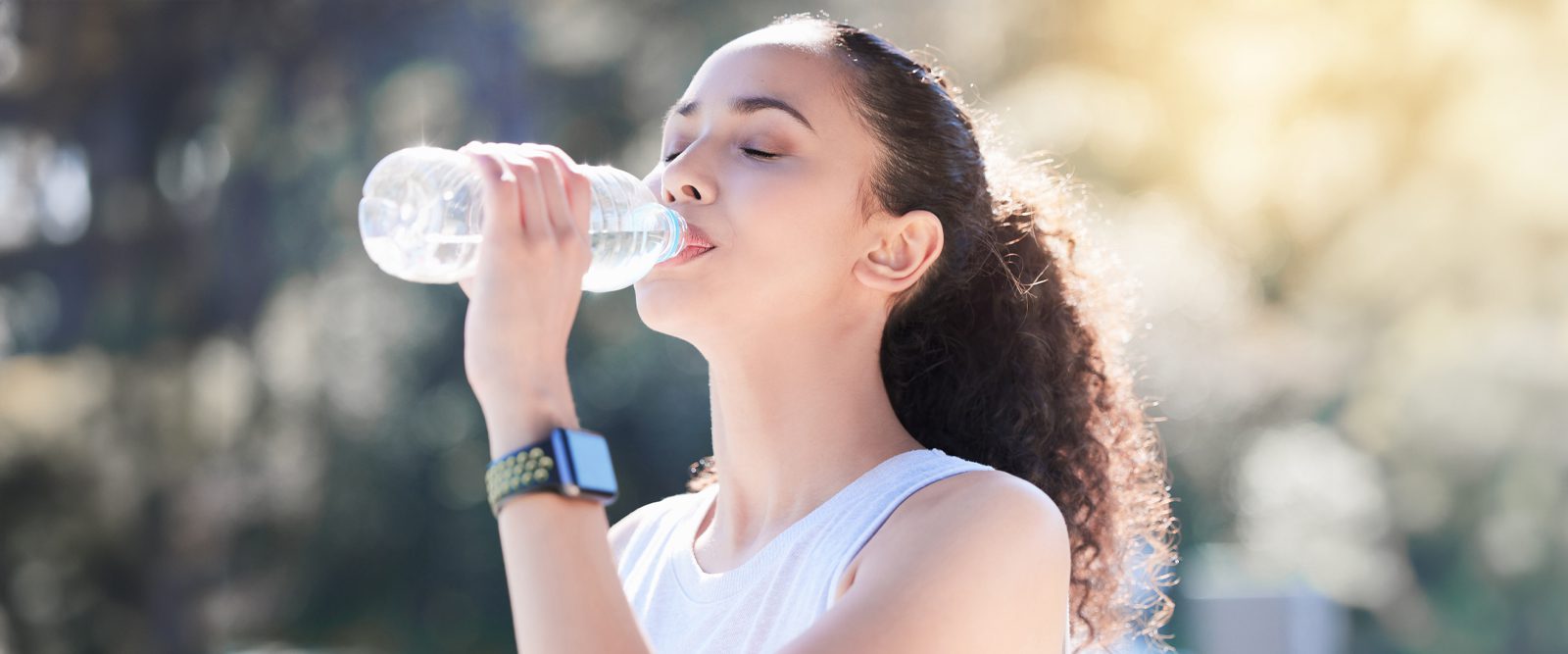How to Stay Safe in Extreme Heat
Emergency medicine physicians share what to know about heat-related illness and how to protect yourself from rising temperatures.

Heat waves have become more extreme and frequent each year, lasting longer than they used to, according to United States Environmental Protection Agency. During these rising temperatures, people are at a higher risk of experiencing heat exhaustion and heat stroke, two forms of heat-related illnesses that occur when the body is not able to cool itself down.

Dr. Adam Blumenberg
As a result, emergency room visits due to heat-related illnesses have risen in the U.S., according to a report by the Centers for Disease Control and Prevention (CDC). While they are serious conditions, heat exhaustion and heat stroke are preventable, says Dr. Adam Blumenberg, an emergency medicine physician at NewYork-Presbyterian and Columbia. “People should be out enjoying life and having a good time, but knowing the signs and symptoms is important,” adds Dr. Blumenberg. “Being prepared and keeping an eye on the weather can help prevent a nice day from going bad.”
Health Matters spoke with Dr. Blumenberg, who shared how to recognize signs and symptoms of heat exhaustion and heat stroke, plus tips on how to stay safe from these conditions.
What are signs and symptoms of heat exhaustion?
Dr. Blumenberg: A mild form of heat-related illness is heat exhaustion. A person might have flu-like symptoms, such as fatigue, like their body is telling them to take a break. That can be helpful because it may stop them from being in the hot environment.
Other signs of heat exhaustion include:
- heavy sweating
- pale, and clammy skin
- a fast, weak pulse
- nausea or vomiting
When does heat stroke occur?
In extreme cases, heat exhaustion escalates to heat stroke, the most severe form of heat-related illness. Heat stroke is life-threatening, or it can leave someone with permanent neurological problems. During a heat stroke, the major organ systems start to become non-functional because of the heat.
The CDC says that signs of heat stroke to look out for are a high body temperature of 103°F or higher, hot, red, dry, or damp skin, and a fast, strong pulse. A person can also experience other symptoms like headaches, dizziness, and nausea.
A characteristic of heat stroke is when the brain is not working right. A person having heat stroke may become confused, unaware of their environment, and might lose the ability to protect themselves or even tell someone that something is wrong. If it gets extreme, they can lose consciousness, and start having seizures or even fall into a coma.
Progression from heat exhaustion to heat stroke can be quick. Someone can go from feeling relatively OK to being unwell over the course of a few minutes. If heat stroke is untreated and the person’s body temperature isn’t brought down quickly, they can die from that.
Tips to Prevent Heat-Related Illnesses
It’s not always easy for people to know when they’re becoming dehydrated or overheated, says Dr. Alexis Halpern, an emergency department physician at NewYork-Presbyterian and Weill Cornell Medicine. “For this reason, it’s important to think about these things ahead of time and plan for them, or just avoid the outdoors altogether.”
- Avoid drinking excessive amounts of alcohol, which contributes to dehydration and might keep you from hydrating well. Caffeinated beverages, soda, and fruit juice, can all be diuretics, but are better than not drinking at all to keep you hydrated.
- Help replace lost fluids from your body by drinking more than your usual water or sports drinks. Consuming electrolyte rich fluids instead of just water is really important.
- Try to limit exercise and other forms of exertion to cooler periods of the day, either early morning or in the evening.
- Rest if you feel tired or weak.
- Be aware that some medications may make you more vulnerable to dehydration. Check with your doctor about which ones to watch out for.
- Wear a hat and light-colored clothing.
- Apply wet towels to your neck or wear a wet headband to help beat the heat.
- If the air temperature is more than 95°F, fans may be ineffective at cooling. Use air conditioning instead.
- In these extreme temperatures, try to avoid being outside or in direct sunlight. Try to stay inside, preferably in air-conditioned environments.
- Check in on your elderly neighbors and those who may not be able to help themselves. Both the very young and the very old are more prone to heat-related illness and dehydration.
- See a doctor or seek help if you start to feel extremely weak, pass out or feel as if you might, experience vomiting, have shortness of breath, stop sweating and become very red, have any change in mental status, or anything else that feels abnormal or scary.
Who is at a greater risk of heat-related illness?
While it can happen to anyone, older adults, young kids, and people with mental health conditions and chronic diseases are at an increased risk. In smaller kids, who do not have the words yet to communicate, they might get a little irritable, excessively cry, and might not act like their usual self. And of course, if they feel very warm, they should be brought into a cooler environment. If they are lethargic and excessively sleepy, then they should get a medical evaluation right away.
If someone is on prescribed medications, what should they keep in mind?
Our bodies have a lot of systems that keep certain values like temperature, heart rate, blood pressure, and respiratory rate within a narrow safe range. These systems function like a thermostat. For example, if we get too hot, our nervous system signals our sweat glands to kick in and skin-surface blood vessels to dilate and radiate off more heat. If we get too cold, our nervous system can turn on the shivering reflex.
A lot of medications can interfere with these systems. For example, antihistamines (e.g., diphenhydramine) decrease the sweat signal and decongestants (e.g., phenylephrine) can decrease the signal that dilates blood vessels. These drugs usually only do this a little bit, but in situations where someone is otherwise close to developing dangerous heat illness, the medications can push them over the edge.
Examples of prescription medications that are associated with excessive body temperature include certain antipsychotics, blood pressure medications, stimulants, and certain antidepressants. Abruptly stopping certain medications can also increase the risk of dangerously elevated body temperature, in some cases.
Dangerous body temperature from prescribed medications is rare but can happen. Talking with your doctor about safety precautions is a great way to stay safe. It is unsafe to make changes to prescribed medicines without consulting your doctor.
What is drug-related heat illness?
We see drug-related heat illness more commonly in the emergency rooms. When people are using stimulant drugs, such as methamphetamine or cocaine, that is a big risk factor for developing drug-related heat-related illness. It changes heart rate, blood pressure, and metabolic activity.
What measures should bystanders take if their loved ones are having a heat stroke?
The first step is to call 911. If a person is suddenly out of it, is not acting like themselves, if they become confused over a short period of time, that is a medical emergency. The CDC recommends to move the person to a cooler place, help lower the person’s temperature with cool cloths or a cool bath, and not give the person anything to drink. You should never put something in an unconscious person’s mouth because they can choke.
When someone is taken to the emergency room, how are heat-related illnesses treated?
The most important treatment for heat stroke is to cool them down quickly. On the hot summer days, a lot of emergency rooms will have a big bucket of ice prepared for this. We might also put ice on their major blood vessels, like under the armpits and groin, and try to cool them down that way as well. We can also give fluids, but usually what works better is to cool the person externally. We give treatment until they are better and either the normal range or at least under 40°C temperature. That seems to be about the temperature where the risk of heat-related illness really takes off.

